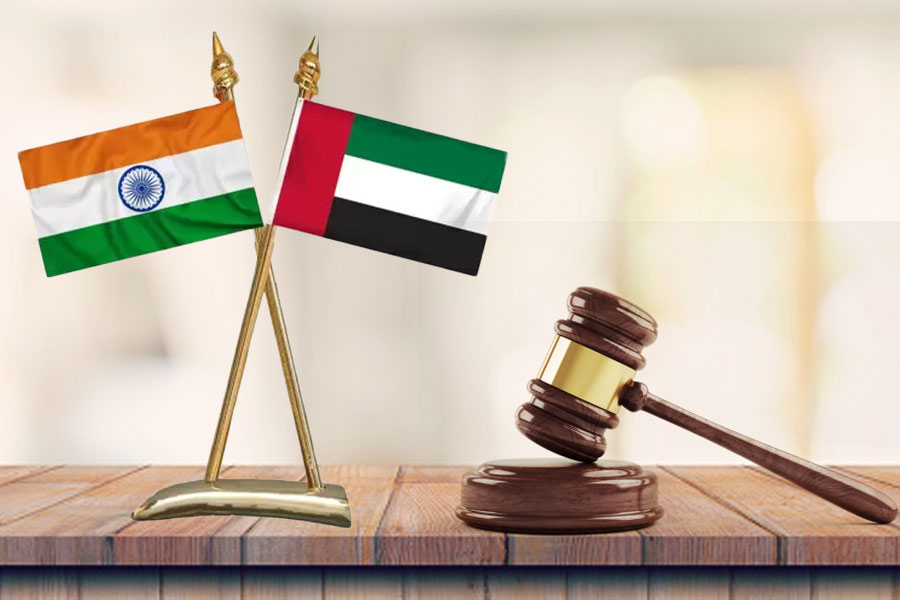Impact of notifying UAE as a reciprocating territory for enforcement of foreign judgment
With the active interest of the Indian courts in shedding any conundrum arising out of enforcement of a foreign judgment from a reciprocating territory under Section 44A of the CPC, recognition of UAE as a reciprocating territory will not only facilitate enforcement proceedings of foreign judgments/ decrees, but also assist in speedy recovery proceedings against defaulting debtors.

India and the United Arab Emirates (“UAE”) on February 18, 2022, signed the Comprehensive Economic Partnership Agreement (“CEPA”), further stabilising the relationship between the two nations. CEPA, which was unveiled on March 28, 2022, is a commendable step by India and the UAE to crystallise the optimism over growing trade, economic and investment cooperation between the two countries. While India and the UAE have seen innumerable cross border investments, regular steps by both the countries to ensure smooth facilitation of trade have enhanced bilateral relations.
One such step to facilitate cross border trade was taken by the Indian government on January 17, 2020, by declaring UAE as a reciprocating territory for the execution of foreign judgments in India under Section 44A of the Civil Procedure Code, 1908 (“CPC”). The same was done by way of an Extraordinary Gazette Notification 36 of 2020, issued by the Ministry of Law and Justice (“Notification”).
According to the Notification issued by the Ministry of Law, the following UAE courts have been identified as ‘Superior Courts’:
- Federal Court-
- Federal Supreme Court;
- Federal, First Instance and Appeals Courts in the Emirates of Abu Dhabi; and
- Sharjah, Ajman, Umm Al Quwain and Fujairah.
Local Courts-
- Abu Dhabi Judicial Department;
- Dubai Courts;
- Ras Al Khaimah Judicial Department;
- Courts of Abu Dhabi Global Markets; and
- Courts of Dubai International Financial Center.
Section 44A of the CPC has an important international role to play. It confers an independent right on the foreign judgment holder to enforce the foreign judgment pronounced outside India, as per the civil procedure in India. However, to benefit from Section 44A of the CPC, foreign countries ought to be recognised as ‘reciprocating territory’ under the said Section. The term ‘reciprocating territory’ covers countries/ territories outside India, which the Central Government of India may, by notification in the Official Gazette, declare to be a reciprocating territory for the purposes of this Section. Once recognised as a reciprocating territory, any judgment/decree passed in such a territory, can be enforced in India as if it had been passed by a District Court of India itself.
For a UAE judgment/decree to be executed in India, such a judgment/decree ought to comply with the requirements of civil procedure in India, specifically with Sections 13, 14 and 44A of the CPC. Further, it also ought to pass the test of conclusiveness, which is laid down in Section 13 of the CPC. Each UAE judgment/decree which, is to be executed in India, ought to have been:
- Passed by a court of competent jurisdiction;
- Given on merits of the case;
- Compliant with the principles of international law and Indian law, where applicable;
- Compliant with natural justice principles;
- Not obtained by fraud; and
- Not in breach of any Indian law.
However, the scope of foreign judgments (as defined under Section 2(6) of CPC) passed in a reciprocating territory is restricted to decrees for payment of money, not being sums payable “in respect of taxes or other charges of a like nature or in respect of a fine or other penalty and cannot be based on an arbitration award, even if such an award is enforceable as a decree or judgment”.
Prior to the UAE receiving the reciprocating country status, judgments passed by the UAE courts, were not directly executable in India and a fresh suit had to be filed here on the basis of such a decree or judgment, which could be construed as a cause of action for the said suit.
However, with the UAE courts being recognised as a reciprocating territory, it has brought forth a sense of security for cross border disputes in the UAE. In this regard, it is relevant to note that as per the Kerala High Court’s ruling in the case of Kadheeja Kalladi Puthanpurayil v. Mohammed Nazir Abdul Aziz (2021), foreign decree obtained from the UAE court, covered by the Notification, passed on or after October 25, 1999[1], will be executable in India under Section 44A of the CPC. However, the said case is pending before the Supreme Court of India.
With the active interest of the Indian courts in shedding any conundrum arising out of enforcement of a foreign judgment from a reciprocating territory under Section 44A of the CPC, it will not only facilitate enforcement proceedings of foreign judgments/ decrees, the reciprocity between the countries will also assist in speedy recovery proceedings against defaulting debtors. Expedited recoveries, reduction in costs involved and the increase in possible legal alternatives for seeking relief against defaulters is expected to immensely benefit litigants.
***
[1] India and UAE entered into a bilateral agreement on October 25, 1999 for judicial co-operation. It is pursuant to such agreement, the Central Government issued notification dated January 17, 2020. This agreement recognizes the execution of the decree of both the countries as though it is a domestic decree.
Authored by Ankoosh K Mehta (Partner) and Kriti Srivastava (Associate) Cyril Amarchand Mangaldas. Views expressed are personal. Usual disclaimers apply.













Leave a comment